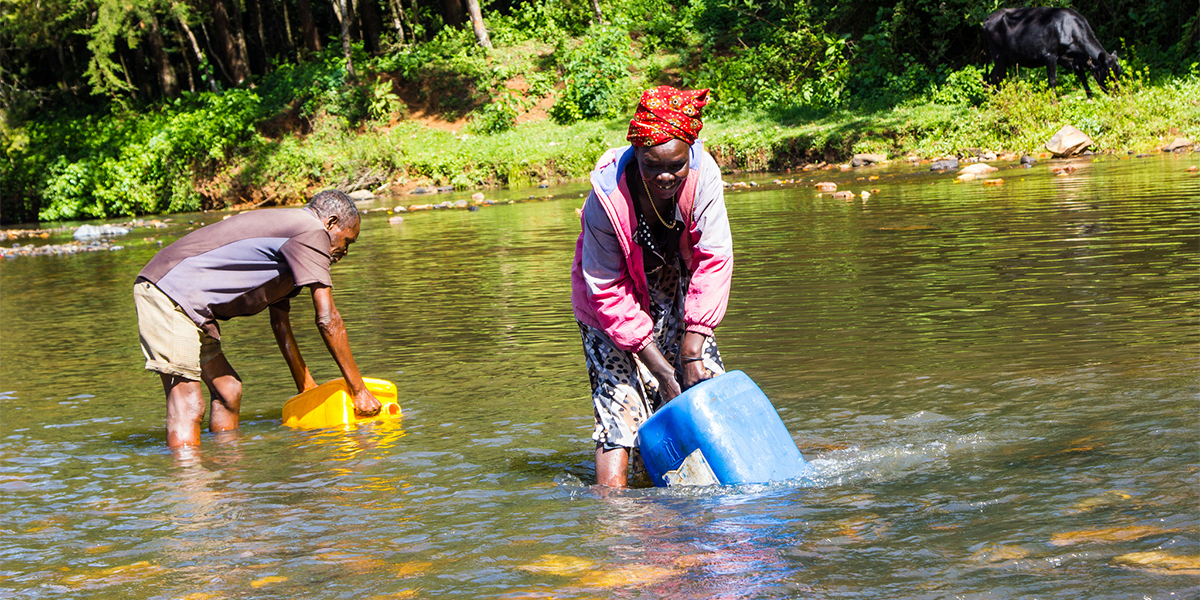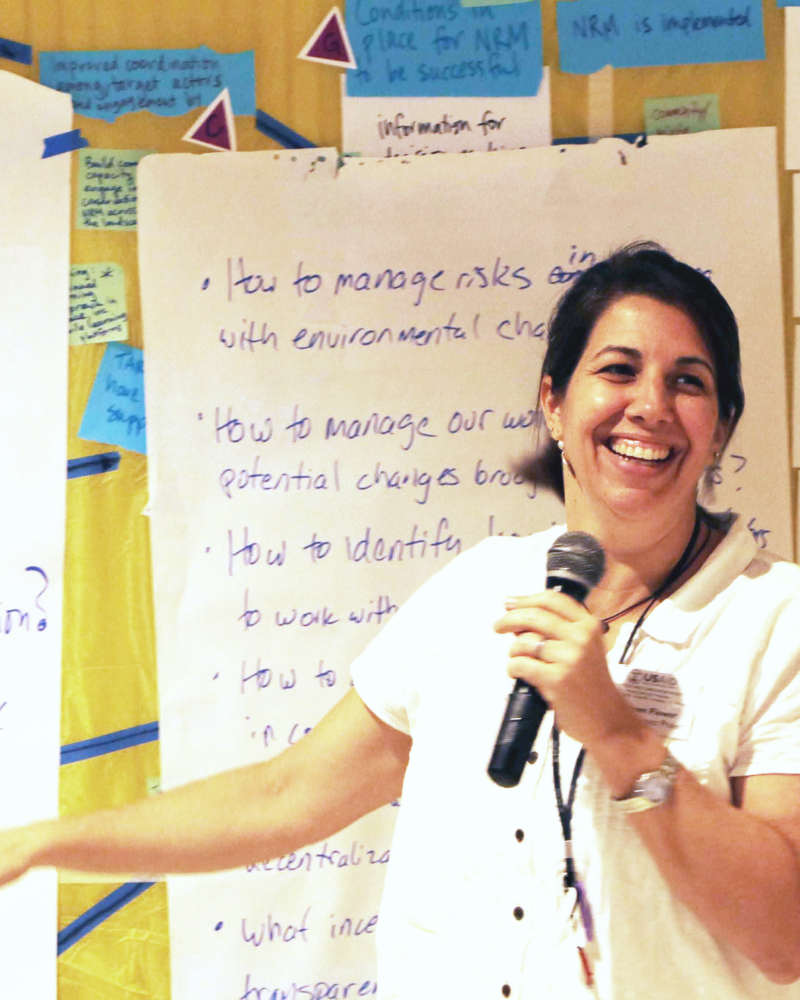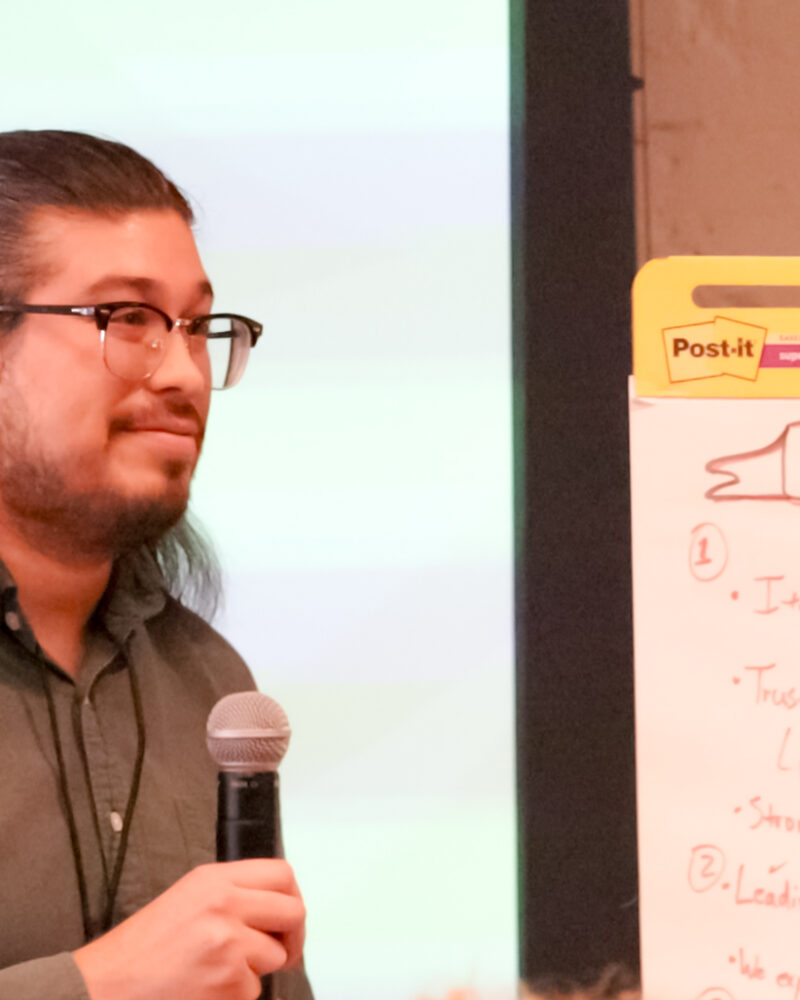What does it mean for a project to be “sustainable”? Most fundamentally, it means a project doesn’t fail in the long term — that the natural environment remains intact and that local actors are able to sustain the benefits of project activities and to take ownership. Sustainable projects take into account the needs of all community members, regardless of status, age or gender.
Despite being one of the key principles of good development, achieving sustainability in the water, sanitation, and hygiene (WASH) sector has been a difficult task. To address that problem, the USAID-funded Sustainable WASH Systems (SWS) Learning Partnership, led by the University of Colorado Boulder, takes a systems approach to strengthen the delivery of WASH services in Cambodia, Ethiopia, Uganda, and Kenya. As one of the partners on the project, Environmental Incentives supports learning and adaptive management to improve systems over time. An integral aspect of the SWS approach is an understanding of all the key actors in a system. As Brittany Ajroud, a learning specialist with Environmental Incentives, says, “When we’re talking about sustainability and thinking of a community, we really need to understand the make-up of that community.”
As we know, women make up around 50% of most communities, but they have often been left out of WASH conversations, compromising the sustainability of many efforts. Ajroud explains why this is so problematic: “Women bear the brunt of work when it comes to fetching water, when it comes to maintaining the health of their families. It’s then surprising when they aren’t consulted when the government or a donor is looking to put in, for example, a new water point, or when they’re creating messaging around sanitation. You really have to think about the user.”
Incorporating women’s empowerment and gender equality into WASH project design and implementation, in a significant way, is a necessary shift that will improve sustainability. But what does that actually look like, and what are the barriers? “A problem we’re still facing is how to get women in the room,” Ajroud says.
This continues to be a challenge for many projects and is something that SWS partners are monitoring and learning from. For example, SWS partners Oxford and UNICEF are using County WASH Forums in Kitui County, Kenya, to strengthen the institutional coordination needed for effective rural water delivery. Despite an inclusive invitation, at two recent county meetings, only 16% and 21% of the attendees were women. Notably, female participants had a higher level of education and more experience (20 years on average) than male participants. According to Ajroud, “That tells us there are some very qualified women out there, and I think we need to understand — what are the barriers to participation, why are those numbers so low, and once they make it into the room, do they have a voice in discussions and decisions that get made?”
Clearly, the SWS partnership has not yet solved the problem of gender equity in these systems, but, as Ajroud says, “Change starts with understanding the system. That seems so basic, but it is fundamental because often we go in with a solution without really thinking about what the problem is. A good way to discover solutions that address barriers to women’s empowerment, participation, and access is by conducting a gender analysis.” USAID’s ”Tips for Conducting Gender Analysis at the Activity or Project Level” provides a useful overview of this process.
From her experience as a learning specialist working with the partnership, Ajroud has additional thoughts about how WASH practitioners can better integrate gender equality into programming. She says, “I think all projects should have indicators that, first, are sex-disaggregated. It’s a really basic thing, but if you want to drive up participation, you need to know how many men and how many women are attending a meeting, like in the Kenya example.” Though this may seem basic, as she says, many projects overlook this step. “And beyond that,” Ajroud continues, “projects should have indicators and learning questions that go beyond the numbers to track qualitatively what’s happening within a community and how interventions are specifically impacting women, men, girls, and boys. It comes back to good project management and thinking carefully about gender in the design, monitoring, evaluation, and learning processes. If all projects were doing this and doing it thoughtfully, I think it would have a big impact.”
One of the partnership’s goals is to share learning outcomes that will improve sustainability within the WASH community. SWS partners will participate at the UNC Water and Health Conference, October 29—November 2, 2018, to discuss some of these findings, and will engage on conference topics including “WASH Equity and Inclusion”. To learn more about the SWS Learning Partnership, visit the program website.
About the Author
Tiffany Gibert is a Communications Specialist supporting Environmental Incentives’ International Practice Area. She bridges her expertise in storytelling with her passion for international development initiatives that benefit ecosystems, biodiversity, and all members of the global community.



